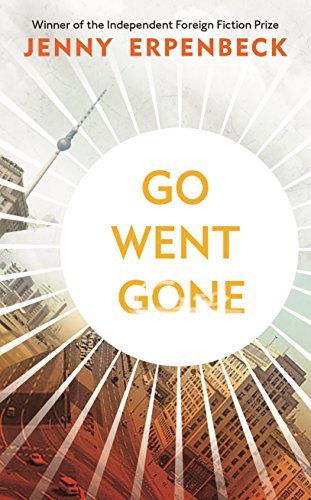ralentina reviewed Go, Went, Gone by Jenny Erpenbeck
The imperfect books we need
4 stars
Gone Went Gone is a very Berlin book, in many respects: it is charming, a bit clunky, principled and with a German depth to it. Well, I realise most people would not associate these qualities with Berlin, but I do.
When I say clunky, I mean its style and plot. It isn't as perfectly-engineered and polished as ‘Iowa-literature’. Some paragraphs seem to reoccur twice, unintentionally. Not everything ties together perfectly, characters come and go and do not necessarily have a clear narrative purpose. Above all, there isn't really a narrative arch, though I don't mean it as a flaw. But it isn't clunky at all when it comes to what I interpret as an open reflection on the refugee crisis and our role as cynical, well-fed onlookers.
Richard, the protagonist, is a former university professor, a bit self-absorbed, who is trying to find a new purpose in life now that …
Gone Went Gone is a very Berlin book, in many respects: it is charming, a bit clunky, principled and with a German depth to it. Well, I realise most people would not associate these qualities with Berlin, but I do.
When I say clunky, I mean its style and plot. It isn't as perfectly-engineered and polished as ‘Iowa-literature’. Some paragraphs seem to reoccur twice, unintentionally. Not everything ties together perfectly, characters come and go and do not necessarily have a clear narrative purpose. Above all, there isn't really a narrative arch, though I don't mean it as a flaw. But it isn't clunky at all when it comes to what I interpret as an open reflection on the refugee crisis and our role as cynical, well-fed onlookers.
Richard, the protagonist, is a former university professor, a bit self-absorbed, who is trying to find a new purpose in life now that he is retired, his wife died and his lover has gone. To my mind, Erpenbeck manages to paint his character with a great sense of measure: he starts off being just as 'good' as I assume most of the readers are (I read some reviews who seemed to think he was the embodiment of selfishness, but actually he is arguably more engaged than the average person) and evolves to be just a bit better. What I find compelling about this delicate evolution is that it avoids falling into the simplistic view that if we only we were more loving on an individual level we could save the world, while suggesting that there are things we could do. Open our houses won't solve the problem, but will save some people from sleeping on the street as well as restore some humanity in our own world.
Another thing that made the book very strong is that it shows that it is based on research and conversations with refugees. It doesn't claim to speak from their perspective (hence Richard), the richness of details makes the stories of every migrant come to life.

